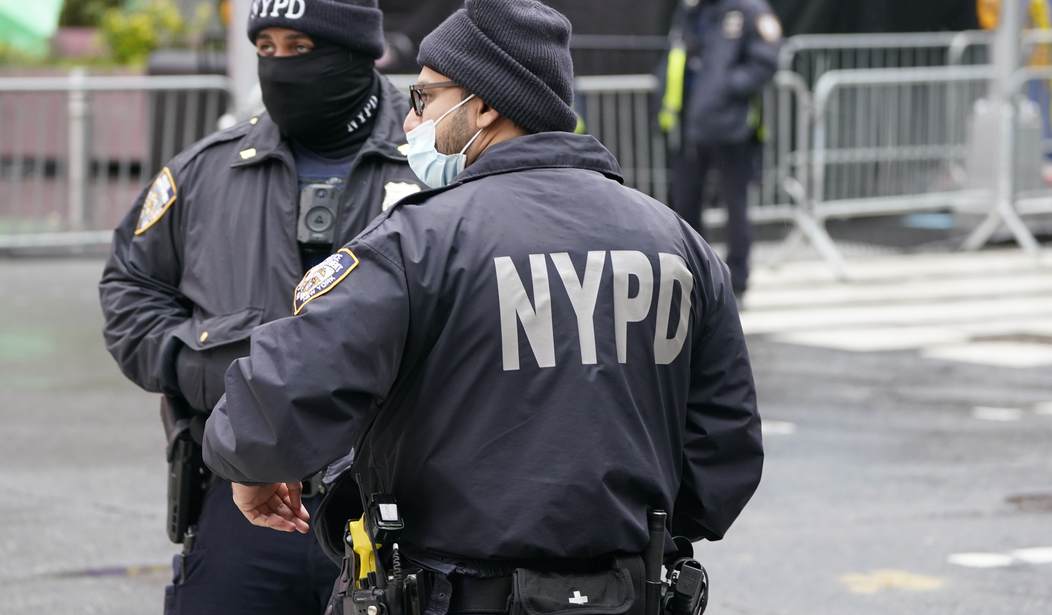"Yes Sir, no Sir," that’s how my parents taught me to speak to police officers when I was growing up. They told me that if I got stopped for speeding, or whatever the reason might be, that I should treat the police with respect when speaking with them.
It was a lesson well learned. When I was 17 I was stopped by a State Trooper for doing 85 in a 70 mile per hour zone at two o’clock in the morning, coming back from dropping my sweetheart off from a date. There was no doubt I was speeding, I knew it, and the State Trooper knew it.
I pulled over to the side of the road and when the officer approached my car I said “Yes Sir, no Sir” when addressing him. I could easily have been issued a traffic ticket for speeding, but instead I was given a verbal warning. It was a huge sigh of relief when I was just told to “slow it down” and then sent on my way. The Trooper cut me a break.
For a teenager who was making minimum wage working after school pumping gas at a local home town gas station, my weekly budget didn’t factor in fines for traffic violations. That ticket would have cost me at least all of my next weekly paycheck to pay the fine and court costs. Not to mention an expected big increase in my car insurance premiums once that ticket got onto my driving record. There’d have been no money left after that to take my high school sweetheart out for a date the following weekend for sure.
This was during the 1970s, the Vietnam era when police officers were regularly being called PIGs by a lot of people in the college anti-war movement. Police officers weren’t viewed in a very favorable light by many young radicals at the time.
Recommended
And though I had not had any negative contacts with law enforcement before then, the words my parents gave me about how to deal with ‘the law’ had a lot to do with why the State Trooper chose to let me go with a warning instead of writing me a ticket. It was called ‘respect.’ I showed him the respect that his position of authority merited, and that he had earned by being a ‘protector of the community’. A lesson that has stayed with me for many years.
I have been stopped a few more times over the years for speeding since that time when I was a teenager (I have a heavy foot), and I’ve gotten a couple of traffic tickets issued to me. Far fewer traffic tickets than I could have been issued. And each time I’ve been stopped I followed the advice of my parents from many years before. “Yes Sir, no Sir” (or Ma’am), and have shown the respect that the badge deserves.
Being a police officer is a tough job. If you just do your job you’re guaranteed to anger some of the people you encounter through the course of your day. It is human nature, people simply do not like ‘getting caught.’ Many will sheepishly admit their error and hope the officer cuts them a break.
Others will lash out, question why the officer isn’t out catching rapists and robbers instead of writing tickets to fill his monthly quota (which doesn’t exist by the way). But always the same rules apply. YOU broke the law. The officer doesn’t have to show you any mercy at all. It’s your attitude that usually determines whether or not you’re issued a traffic ticket.
That holds true for more serious encounters as well. If you’re a felon the police are going to give you the opportunity to comply with the arrest, go to jail, post your bail, and then be released pending trial. If you resist arrest the police will use whatever force is necessary to control you and complete an arrest. It’s their job to enforce the laws that have been established by others.
Sometimes the level of force used may escalate to a deadly force encounter, based on the level of force initiated by the felon. If you point a weapon at a police officer they don’t have to wait for you to shoot at them before they shoot at you. Once a deadly threat is perceived by an officer he is allowed to respond quickly with whatever force is necessary to defend against that threat. Including deploying his service weapon and using deadly force. The last thing any police officer ever wants to have to do.
The facts are that the vast majority of police officers will go through their entire career never discharging their firearm at another human being. It’s simply a rarity in the profession. Contrary to what some social activists try to claim.
It is also a traumatic experience not just for the people involved, including any family members of the person shot by the police. But it’s an emotional experience for police officers as well. Police officers do not take lightly ending the life of another human being. Which is why most police departments offer psychological counseling to any police officer involved in a deadly force incident.
As a society we depend on our police officers to keep us safe, and to maintain order and control over society. Without them we would be living in chaos. Without the rule of law and people who are willing to risk their lives daily to enforce the rule of law, America would be a far different place. It certainly wouldn’t be the land of the free anymore without our police officers. Our Police officers are who make it the home of the brave.

























Join the conversation as a VIP Member